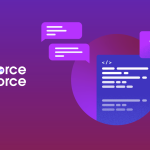COVID-19 has led to a sharp increase in the amount of time consumers spend on digital platforms. For marketers, this is a huge opportunity to stay connected with their audiences during the pandemic. But with so much being communicated digitally, not every conversation is attracting engagement.
Engaging customers in real-time requires faster, more accurate decision-making regarding what needs to be said, when it needs to be said, and how. Messaging that reflects a deep understanding of customer context and offers relevant communication is key.
Artificial Intelligence (AI)-powered solutions, with their predictive capabilities, can help marketers make the right decisions, in near real-time. They can also enable marketers to run contextual marketing campaigns and personalise conversations with prospects and customers. This results in better engagement rates and an improved customer experience.
Here’s how AI-enabled solutions are transforming marketing:
1. Smarter segmentation for better audience discovery
Buyer personas are the cornerstone of modern digital marketing. AI solutions can help segment these personas, smartly. By crunching hundreds of data points from ongoing campaigns, the solutions help marketing teams find new sub-segments.
An outdoor apparel brand has an audience segment of hikers. AI informs marketers of two sizeable categories within this segment – family road-trippers and tech-savvy hikers. Using these insights, they tailor their product recommendations for each of these categories, resulting in more precise targeting. For example, family road-trippers are shown hiking gear for kids, and tech-savvy hikers are shown the latest GPS device or solar-powered light.
Identifying the audience sub-segments helps launch hyperpersonalised marketing initiatives. Marketing platforms with in-built AI capabilities can identify the unique traits of individual customers within a sub-segment. This can then be leveraged to tailor the marketing content and build personalised customer relationships.
2. Accurate predictions to aid lead conversion
Traditionally, marketing decisions were driven by marketers’ experience and gut instinct. AI-solutions take the guesswork out of the process with their accurate, data-driven predictions. These predictions enable marketers to personalise the customer journey and successfully transition leads through the marketing funnel, ultimately boosting lead conversion.
Consider Einstein Engagement Scoring, for instance. This AI-enabled feature of Salesforce Marketing Cloud uses machine learning on customer data to assign a score to a company’s email subscribers. The score predicts the likelihood of each subscriber engaging with your email campaigns, and ultimately, to convert. The feature can also tell you how likely a subscriber is to open an email, click the links within that email, or to stay subscribed.
Marketers can use these predictions to build more personalised customer journeys. For instance, customers with a low probability to open emails can be targeted through other channels, such as social media ads and mobile messaging.
3. Personalised messaging across channels for better engagement
Based on factors such as browsing history, age, and recent engagement with a brand, AI algorithms can serve the landing page that is most likely to resonate with a website visitor. The same goes for advertising. The algorithm can select and offer the right copy from a bunch of options, in real-time, according to a user’s profile. This helps marketers run dynamic ad campaigns that are accurately targeted at users.
Today, AI-powered solutions can be even more specific, helping marketers deliver just the right amount of engagement. For instance, Einstein for Marketing Cloud has an Engagement Frequency feature. It tells you the optimum number of emails to send to customers for brand recall without being seen as spamming them. Similarly, it tells you which subscribers are being emailed too little or too often. Based on this information, marketers can tailor their messaging strategy for better customer engagement.
“AI-powered analysis can also tell you when email engagement rates are too low, and if a social content strategy would be a better bet.”
As customers start to value brand experience as much as products, businesses will need to deliver personalised messaging across channels to stay competitive. AI can boost your marketing team’s understanding of customer behaviour and engagement.
To see how marketing teams can leverage this understanding to create personalised, well-timed, and contextual marketing campaigns, try Einstein for Marketing Cloud.
This post originally appeared on the I.N-version of the Salesforce blog.

























